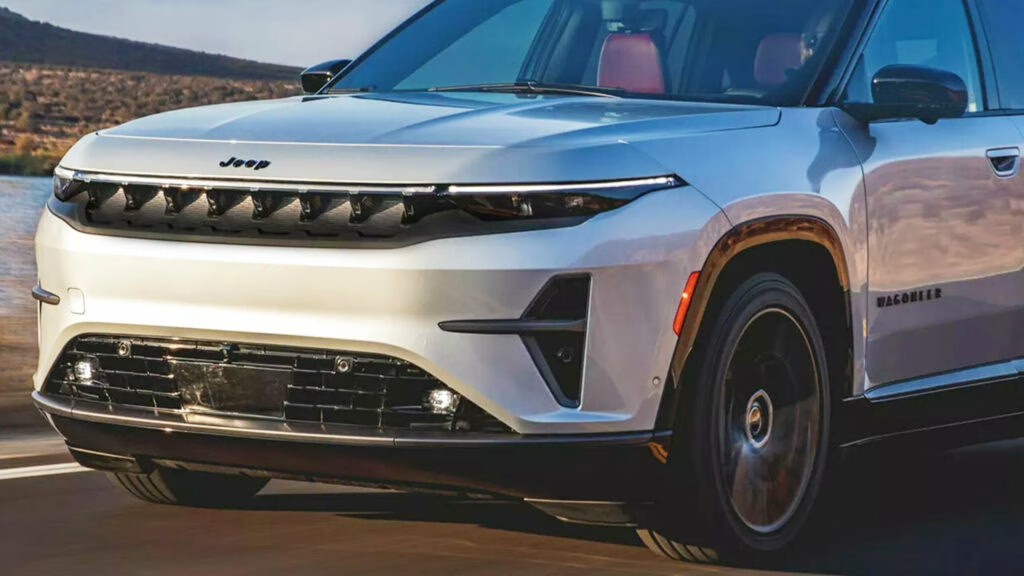What’s Behind the Latest Jeep Wagoneer S and Dodge Charger Daytona Recalls?
If you’ve been eyeing the new Jeep Wagoneer S or the Dodge Charger Daytona, you might’ve heard some buzz about recent recalls. Here’s the lowdown: FCA US has flagged two separate issues, both discovered before any incidents or injuries occurred. The good news? Fewer than 100 vehicles are affected, so this isn’t a sweeping industry crisis—but it’s a reminder that even the most advanced electric vehicles aren’t immune to hiccups.
How Serious Are These Recalls, and Who’s Impacted?
Let’s break it down. The first recall targets 26 Jeep Wagoneer S models built between August 9, 2024, and March 18, 2025, plus 49 Dodge Charger Daytona units assembled from August 2, 2024, to April 3, 2025. That’s a tiny slice of the total production run, but if you’re one of the owners, it matters a lot.
The culprit? A mis-installed Park Pawl Return Spring inside the Electric Drive Module. According to the National Highway Traffic Safety Administration (NHTSA), this spring is crucial for keeping your SUV or muscle car stationary when parked on a slope. Federal safety standards are crystal clear: a parked vehicle shouldn’t roll more than 5.9 inches on a 10 percent grade with the brakes off. Some affected vehicles could move farther, raising the risk of a rollaway. Not exactly the kind of surprise you want when you think your car is safely parked.
What’s the Fix, and When Will Owners Be Notified?
FCA isn’t wasting time. Owners will start getting recall notices on September 25, and dealerships have been instructed to swap out the entire Electric Drive Module at no cost. This isn’t just a quick tweak—it’s a full replacement, ensuring peace of mind for anyone behind the wheel.
A second, even smaller recall affects just eight 2025 Jeep Wagoneer S SUVs built on January 31, 2025. Here, the issue is an incorrectly installed cross car beam in the instrument panel. In the event of a crash, this could mess with how crash forces are distributed, potentially upping the risk of injury. FCA’s investigation kicked off in July, and by late August, they’d pinpointed the affected vehicles. Owners will hear from FCA starting October 24, with free repairs lined up at dealerships.
Why Do These Recalls Matter for Electric Vehicle Safety?
It’s easy to shrug off small recalls, but they’re a big deal for the industry’s reputation—especially as electric vehicles (EVs) become more mainstream. The Jeep Wagoneer S and Dodge Charger Daytona represent the cutting edge of American EV design, so any safety concern gets magnified. According to a 2023 report from the Insurance Institute for Highway Safety, EVs are generally as safe as their gasoline counterparts, but new tech means new challenges. Catching issues early, before they lead to accidents, is a sign that manufacturers and regulators are on their game.
What Should Owners Do Right Now?
If you own one of these vehicles, don’t panic. FCA is handling the repairs proactively, and there’s no evidence of accidents or injuries linked to these issues. Still, it’s smart to keep an eye out for your recall notice and book your service appointment promptly. Even if your vehicle isn’t affected, this is a good reminder to stay current on recall news—NHTSA’s website lets you check your VIN for open recalls in seconds.
How Do These Recalls Affect the Reputation of Jeep and Dodge?
Let’s be real: recalls can sting, especially for brands trying to win over new EV buyers. But transparency and quick action can actually build trust. FCA’s decision to recall fewer than 100 vehicles, rather than waiting for a pattern of incidents, shows a commitment to safety over optics. In the long run, that’s what keeps loyal customers coming back.
The big takeaway? EV safety isn’t about perfection—it’s about smarter adjustments. Start with one change this week, and you’ll likely spot the difference by month’s end.

